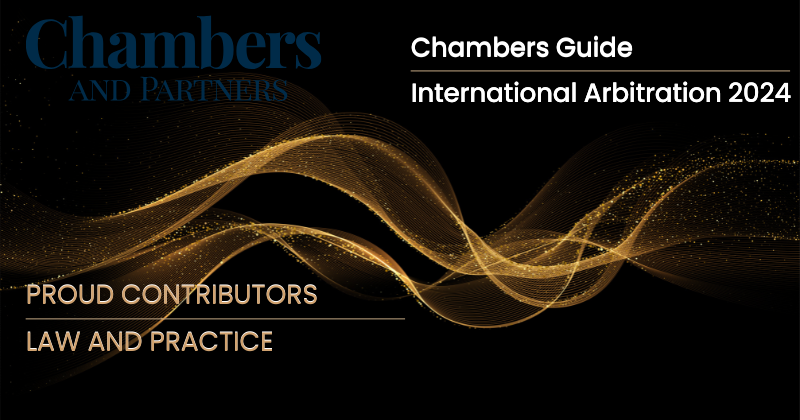By Geoffrey Muchiri
In the arbitration world, Model Law countries refer to countries which have adopted the UNCITRAL Model Law on Arbitration of 1985 (Model Law) as part of their domestic law. The objective behind the Model Law was to harmonize the arbitration laws of different jurisdictions across the world. Model Law countries are characterized by minimal Court interference in the arbitral process often limited to interim measures of protection, appointment and removal of arbitrators, enforcement of arbitral awards and challenge to arbitral awards.
Courts in Model Law countries have often deferred to the arbitral process so much so that they have consistently held that when an arbitration clause exists, any challenges to the jurisdiction of the arbitrator ought to be raised with the arbitrator, as an arbitrator’s jurisdiction extends to determining whether the arbitration agreement is valid and/or confers him with the jurisdiction to hear the dispute under what is known as the kompetenz kompetenz doctrine.
With the foregoing in mind, it came as a surprise when on 26th June 2020, the Supreme Court of Canada (a Model Law jurisdiction) handed down its Judgment in the case of Uber Technologies Inc. v David Heller (2020) SCC 16, wherein the majority upheld the decision of the Court of Appeal which had held that objections by a party to an arbitration clause need not be referred to an arbitrator under the kompetenz kompetenz doctrine.
The facts of the case were that David Heller provided food delivery services in Toronto, Canada using Uber’s software application. To become a driver for Uber, Heller had to accept the terms of Uber’s standard form services agreement which required him to resolve any dispute with Uber through mediation and arbitration in the Netherlands. The mediation and arbitration process required the payment of an up-front administrative and filing fees of USD 14,500 plus legal fees and other costs of participation. These fees represented most of Heller’s annual income. In 2017, Heller started a class action against Uber in Ontario for alleged violation of employment standards legislation.
Uber brought a motion to stay the class action and have the matter referred to arbitration in the Netherlands. In so doing, Uber relied on the arbitration clause in the services agreement with Heller. Heller argued that the arbitration clause was unconscionable and therefore invalid. The motion Judge agreed with Uber, stayed the proceedings, and held that the arbitration agreement’s validity had to be referred for determination within the arbitration to be conducted in the Netherlands, in accordance with the kompetenz kompetenz principle. Dissatisfied, Heller successfully appealed to the Court of Appeal which set aside the motion Judge’s order and concluded that Heller’s objections to the arbitration clause could be dealt with by a Court in Ontario. It also found the arbitration clause to be unconscionable, based on the inequality of bargaining power between the parties and the improvident cost of arbitration.
On further appeal this time by Uber to the Supreme Court of Canada, the apex Court upheld the decision of the Court of Appeal and dismissed the Appeal upon finding that the arbitration agreement in issue made it impossible for one party to arbitrate and it was thus a classic case of unconscionability. The majority held that Courts could in certain circumstances assume jurisdiction and determine the validity of arbitration agreements by derogating from the doctrine of kompetenz kompetenz. The rationale for the majority decision was based on the doctrine of unconscionability determined upon application of a two-pronged test as follows:
Firstly, whether there was an inequality of bargaining power. With regards to this element the majority held that there was inequality of bargaining power between Uber and Heller because the arbitration clause was part of an unnegotiated standard form contract and there was a significant gulf in sophistication between the parties, and a person in Heller’s position could not be expected to appreciate the financial and legal implications of the arbitration clause.
Secondly, whether there was a resulting improvident bargain. With regards to this second limb of the two-pronged test the majority held that the arbitration clause was improvident because the arbitration process required the up-front payment of USD 14,500 in administrative fees (a figure which was close to Heller’s annual income and effectively served as a hurdle in the way of accessing the arbitral tribunal and obtaining relief). As a result, the arbitration clause was unconscionable and therefore invalid. For these reasons there was a real prospect that if the matter was sent to be heard by an arbitrator, Heller’s challenge to the validity of the arbitration agreement may never be resolved.
Fully cognizant that they were departing from the venerable rule of systematic referral by clawing-back jurisdiction from the arbitral tribunal and turning the doctrine of kompetenz kompetenz on its head, the majority framed a further issue that would assist Courts in determining whether they should assert jurisdiction, namely, accessibility to Courts or dispute resolution tribunal.
In so doing, they held that in addition to the two exceptions to arbitral referral set out in the case of Dell Computer Corp. v. Union des consommateurs (2007) 2 SCR 801, and Seidel v. TELUS Communications Inc.(2011) 1SCR 531, a Court may depart from the general rule of arbitral referral if an issue of accessibility arises. The assumption made in Dell was that if the Court did not decide an issue, then the arbitrator would. The majority posited that the Dell case did not contemplate a scenario wherein the matter would never be resolved by the arbitral tribunal if the stay were granted by the Court. In the instant case, they highlighted that the validity of an arbitration agreement would not be determined by the arbitral tribunal and was thereby open for determination by the Courts given that:
- The arbitration agreement was fundamentally too costly or otherwise inaccessible by Heller and other drivers in his position given the USD 14,500 required to begin the arbitration relative to the claim.
- The plaintiff could not reasonably reach the physical location of the arbitration.
- The choice of a foreign law clause might have circumvented mandatory local policy, such as a clause that would prevent an arbitrator from giving effect to the protections in Ontario employment law.
The majority found that in such situations, staying the action in favour of arbitration would be tantamount to denying relief for all claims made under the agreement, and the arbitration agreement would, in effect, be insulated from meaningful challenge. The majority went on to hold that a Court should not refer a challenge to an arbitrator’s jurisdiction to the arbitrator if there was a real prospect that doing so would result in the challenge never being resolved. The majority also held that upholding the arbitration clause would be tantamount to providing an illusory contractual right incapable of enforcement – reason being that although arbitration was the envisaged dispute resolution mechanism available per the contract, it unfortunately fell out of reach for Heller and the other drivers for it was neither cost effective nor attainable and thus in effect a non-existent option.
Justice Russell Brown in his concurring opinion chose to agree with the majority that the appeal ought to be dismissed. He however disagreed with the majority’s reliance on the doctrine of unconscionability as the basis for upholding the Court of Appeal’s decision as he felt that they had vastly expanded the scope and application of the doctrine of unconscionability thereby leading to a possibility of introducing uncertainty in the enforcement of contracts where predictability was paramount. According to Justice Brown, the answer to the conundrum lay in the doctrine of public policy because in the instant case the arbitration agreement had undermined the rule of law by denying Heller access to justice. The arbitration clause in the case was contrary to public policy as it was not an agreement to arbitrate but an agreement not to arbitrate as it expressly provided for arbitration while simultaneously having the effect of precluding, thereby dissolving, curial respect for arbitration. Accordingly, in such instances the principle of public policy would operate so as to prevent an ouster of Court jurisdiction. Despite the foregoing, Justice Brown reiterated the Court’s deference to the arbitral process by stating that a Court should show due respect for arbitration agreements, particularly in the commercial setting and it would be only be in the rarest of cases such as where an arbitration agreement imposed undue hardship and acted as an effective bar to adjudication that Courts would interfere.
Lady Justice Suzanne Côté wrote a powerful dissent wherein she held that she would have allowed the appeal and upheld the arbitration clause thereby allowing a stay of proceedings on condition that Uber advanced the funds needed to initiate the arbitration proceedings. According to Justice Côté, the rule of systematic referral should take precedence as it required that any challenge to the arbitrator’s jurisdiction would be resolved first by the arbitrator (who would determine the validity of the arbitration clause before the Courts). She cautioned the Courts against creating an exception to the rule of systematic referral and stated that reference to the Courts would only be necessary if the arbitration agreement was found to be null and void under the Model Law or the Arbitration Act. Justice Côté held that a Court would only depart from the rule of systematic referral where the jurisdictional challenge was based solely on a question of law or a question of mixed law and fact that required only a superficial review of the documentary evidence, and was not a delaying tactic or one intended impair the conduct of the arbitral proceedings.
This decision is of great importance in a country such as Kenya where various technological companies have engaged the services of drivers and other employees based on their standard form contracts. Kenya, being a Model Law country, is characterized by the Courts giving great effect to arbitration agreements in accordance with sections 6 and 17 of the Arbitration Act,1995 as well as Article 159 (2) (C) of the Constitution. However, the Canadian Supreme Court decision in Uber v Heller confirms that Courts do have the jurisdiction to examine the validity of the arbitral agreements and need not cede jurisdiction to the arbitral tribunal.
Only time will tell how the decision of Canadian Supreme Court in Uber v Heller will be looked upon in other jurisdictions, particularly Model Law countries. What is clear however is the need to re-look at “manifestly expensive arbitral clauses” and the decision serves as a clarion call for companies in “strong bargaining positions” to negotiate balanced agreements and in particular practical and cost effective dispute resolution clauses, lest they be found to be invalid or unconscionable as was the case in Uber v Heller.





